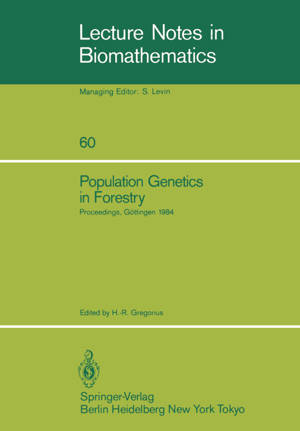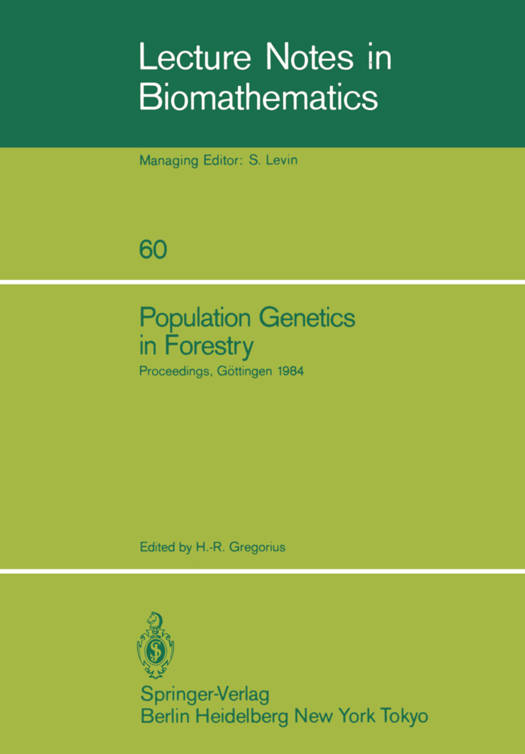
- Retrait gratuit dans votre magasin Club
- 7.000.000 titres dans notre catalogue
- Payer en toute sécurité
- Toujours un magasin près de chez vous
- Retrait gratuit dans votre magasin Club
- 7.000.000 titres dans notre catalogue
- Payer en toute sécurité
- Toujours un magasin près de chez vous
Population Genetics in Forestry
Proceedings of the Meeting of the Iufro Working Party "Ecological and Population Genetics" Held in Göttingen, August 21-24, 1984
52,95 €
+ 105 points
Description
When we consider the main object of forestry, the tree, it immediately becomes clear why experimental population geneticists have been so hesitant in making this object a primary concern of their research. Trees are very long-living organisms with generation intervals frequently exceeding those of their investigators by multiples. They virtually exclude, therefore, application of the classical methods of population genetics since these are based on observing genetic structures over generations. This situation, where the limits set to observation are so severe, particularly requires close cooperation between theory and experiment. It also requires careful consideration of results obtained for organisms other than trees, in order to gain additional insights by comparing the results for trees with those for other organisms. Yet, the greatest challenge to population and ecological genetics probably originates from the fact that forests are very likely to be the most complex ecosystems of all, even in some cases where they are subject to intense management. This complexity, which equally comprises biotic and abiotic factors varying both in time and space, makes extremely high demands on the adaptational capacity and thus flexibility of the carriers of such an ecosystem. Longevity combined with immobility during the vegetative phase, however, appears to contradict the obvious necessity of adaptational flexibility in forest tree populations when compared with short lived and/or mobile organisms.
Spécifications
Parties prenantes
- Editeur:
Contenu
- Nombre de pages :
- 292
- Langue:
- Anglais
- Collection :
- Tome:
- n° 60
Caractéristiques
- EAN:
- 9783540159803
- Date de parution :
- 01-10-85
- Format:
- Livre broché
- Format numérique:
- Trade paperback (VS)
- Dimensions :
- 170 mm x 244 mm
- Poids :
- 480 g






